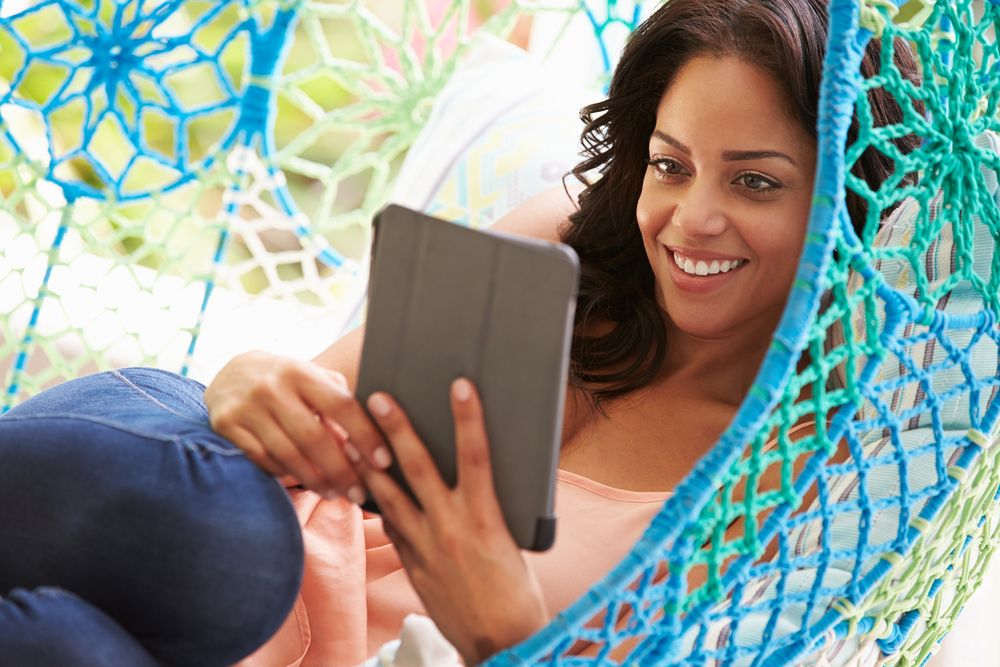Why Black Women Greatly Need Our Own Media Spaces

by Shonette Reed
More often than not, African American women are expected to understand the perspective of everyone else, leaving us to fend for ourselves. We are constantly being fed the “majority” view—whether that be beauty, hair, vernacular, and so forth. We are often viewed as “aggressive” or “standoffish” or just plain “mean and angry.” When truth be told, we share the same race as the rest of the world—human—and thus, we should be allowed to show emotion as the human beings we are. Having media that caters to our voice creates a space for us to be heard, and for conversations to go beyond the misunderstandings, distortions, and appropriations. As women, we are allowed to have a voice, an opinion. We have the right to be heard. And in our success, the right to be acknowledged and celebrated.
“Race is one of those topics in America that makes people extraordinarily uncomfortable,” said Mellody Hobson in her 2014 TED Talk titled “Color Blind or Color Brave.” This quote is very relevant to the society we inhabit. It’s important that we not only confront race, but that we have spaces dedicated for women of color to share their experiences. Having media that is specifically catered to women of color brings awareness to the issues we face, as it provides opportunities for us to celebrate our successes, in ways that mainstream media does not.
The mainstream media platform does so much of the talking for us, that we find ourselves drowning in stereotypes. And I would prefer my identity as a black woman to not be defined by someone comparing me to the portrayals of us in Bad Girls Club or the Real Housewives of… wherever. Nor do I want black men speaking for me, or having my perspectives drowned out by theirs.
This is why having websites, magazines, television shows, and movies that show accurate perspectives on and from black women are so necessary and appreciated by our community. They amplify our voices—voices that are often quieted because they seem “aggressive” or “angry.” By having our own media spaces, we can tell our own stories.
Stories are a dynamic aspect of culture. Without them, we are capable of forgetting the diversity that makes up the world we live in. When you neglect to listen to a person’s story, told in their own voice, we fail to offer them to respect and humanity they deserve. Black women are frequently told our stories are not important, even though we “The Danger of a Single Story,” as Chimamanda Adichie warns us in her famous TED Talk. Adichie points to the fact that we are “vulnerable and impressionable,” and the narratives we hear (and tell) have a profound impact on us. The award-winning author discusses how she started off writing the same stories that she had read. Stories about girls with “blonde hair and blue eyes, who drank gingered beer and talked about the weather,” though Chimamanda herself had done none of those things. Eventually she learned to tell different stories, stories that were more true for herself and women like her. And this has contributed largely to her success.
There have been a number of traditional and digital media outlets developed that focus on the black community—and black women, specifically—such as Ebony and Essence magazines. There has also been a new wave of blogs and social media communities to come up, such as Clutch, MadameNoire, and our very For Harriet. Through these magazines, blogs, and online communities, Black women’s perspectives are centered both online and “in the real world.” Then there are the unofficial communities, such as Black Twitter and Black Tumblr, which have allowed black folks to connect, comment on or break news stories, and discuss critical issues within the black community—such as the appropriation of black culture.
We don’t have to rely on Vogue or W to decide that black women are worthy of being featured on their covers or in their editorial features, when we have the opportunity to create media spaces of our own. And while many of us may still engage with and enjoy flipping through the pages of Vogue, it doesn’t provide as much meaning because we often don’t see ourselves reflected within the magazine. The rare instance when Kerry Washington or Viola Davis or Lupita N’yongo make the cover is not enough. But it absolutely means something that I can visit sites such as For Harriet and get honest, diverse, original perspectives from black women from all walks of life. It means something that we examine black women’s representation from Hollywood to corporate America, because I could one day be in one of those places.
These websites and magazines, while not having the same reach or influence as institutional outlets, are placing our conversations and stories at the forefront, when everyone else is still trying to place us on the backburner. These media platforms are safe places. They are places where we can recount our trials and victories, and being comforted in knowing that someone truly understands why these things are significant in our lives.
These Black women’s media spaces celebrate our beauty, celebrate our diversity—when others choose not to. The world does not consist of one standard of beauty, though America would have us believe so. The world does not consist of one way of living, though America has made it so. The world is very diverse, from hair textures to facial features to strides in walk and the way we speak. But where else do we see this diversity, unless it’s in magazines and websites who specifically cater to black women and women of color?
Though there are strides being made to incorporate diversity more into mainstream media, we still need our own spaces for storytelling, news, and examining the world from our unique perspectives. We need something that amplifies our voice. We need something that caters to and centers us. Because though we can converse with one another, we need a medium to help us converse with the rest of the world and show the world that we too are making an influence.
Photo: Shutterstock
Shonette Reed is a recent Biola journalism graduate and freelance writer from Los Angeles. Her interests include fashion, traveling, music, and art.

No comments: